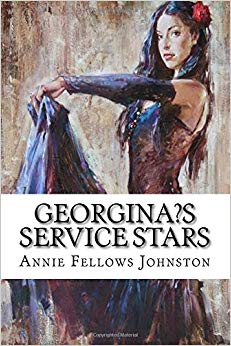Annie Fellows Johnston
The Little Colonel's holidays
About the Book
The pop art movement emerged in Britain and the United States during the mid- to late-1950s. This movement presented a challenge to traditions of fine art, by including imagery from popular and mass culture, such as advertising, comic books and mundane cultural objects. However, popular culture has a much broader meaning, encompassing a wide range of arts and literature that can including books, songs, domestic and public entertainments.
Also in this Book
Christian holidays are those that are a part of the liturgical year, with the chief ones being Easter and Christmas. Orthodox Christians and Western-Roman Catholics have a patronal feast day or "name day" that is celebrated in each place's patron saint's day, according to the Calendar of saints. The Christian Liturgical Calendar is divided into the following seasons: Advent, Christmastide, Ordinary Time 1, Lent, Paschal Triduum, Eastertide and Ordinary Time 2.
And in this Book
In historical fiction the plot is set in the past, and pays attention to the manners, social conditions and other details of the period portrayed. Some authors choose to include famous historical figures in their fictional plots, so that audiences can imagine how those individuals might have responded to the plots and environments established by the author. The Western literary component of this genre is founded in the early 19th century works of such authors as Sir Walter Scott, Honoré de Balzac, James Fenimore Cooper, and Leo Tolstoy.
About us
Leopold Classic Library has the goal of making available to readers the classic books that have been out of print for decades. While these books may have occasional imperfections, we consider that only hand checking of every page ensures readable content without poor picture quality, blurred or missing text etc. That's why we:
- republish only hand checked books;
- that are high quality;
- enabling readers to see classic books in original formats; that
- are unlikely to have missing or blurred pages.
Happy reading!
- Pages
- 264
- Weight
- 27.2 oz.
- Dimensions
- 8.5 x 0.6 in.
Enjoy reading The Little Colonel's holidays? You may also like these books
-

Annie Fellows Johnston
The Three Weavers: A Fairy Tale
Paperback (Kessinger Publishing, LLC Sept. 10, 2010) -

Annie Fellows Johnston
Miss Santa Claus of the Pullman
Paperback (CreateSpace Independent Publishing Platform Jan. 26, 2017) -

Annie Fellows Johnston
The Jester's Sword
Paperback (CreateSpace Independent Publishing Platform Sept. 25, 2017) -
U

Annie Fellows Johnston
The Quilt That Jack Built, How He Won the Bicycle: Illustrated
Paperback (CreateSpace Independent Publishing Platform July 9, 2015) -

Annie Fellows Johnston
Keeping Tryst: A Tale of King Arthur's Time
Paperback (CreateSpace Independent Publishing Platform Nov. 13, 2014) -

Annie F. (Annie Fellows) 1863 Johnston
The Little Colonel's good times book
Paperback (Nabu Press Oct. 14, 2010) -

Annie F (Annie Fellows) 1863 Johnston
Mary Ware, the Little Colonel's Chum
Hardcover (Wentworth Press Aug. 29, 2016) -

Annie Fellows Johnston
In League With Israel: A Tale Of The Chattanooga Conference
Hardcover (Palala Press Sept. 18, 2015) -

Annie Fellows Johnston
The Little Colonel's Good Times Book
Hardcover (Forgotten Books March 17, 2018) -

Annie F. (Annie Fellows) 1863 Johnston
The Little Colonel's Good Times Book
Hardcover (Franklin Classics Oct. 14, 2018) -

Annie Fellows Johnston
Georgina?s Service Stars
Paperback (CreateSpace Independent Publishing Platform )









